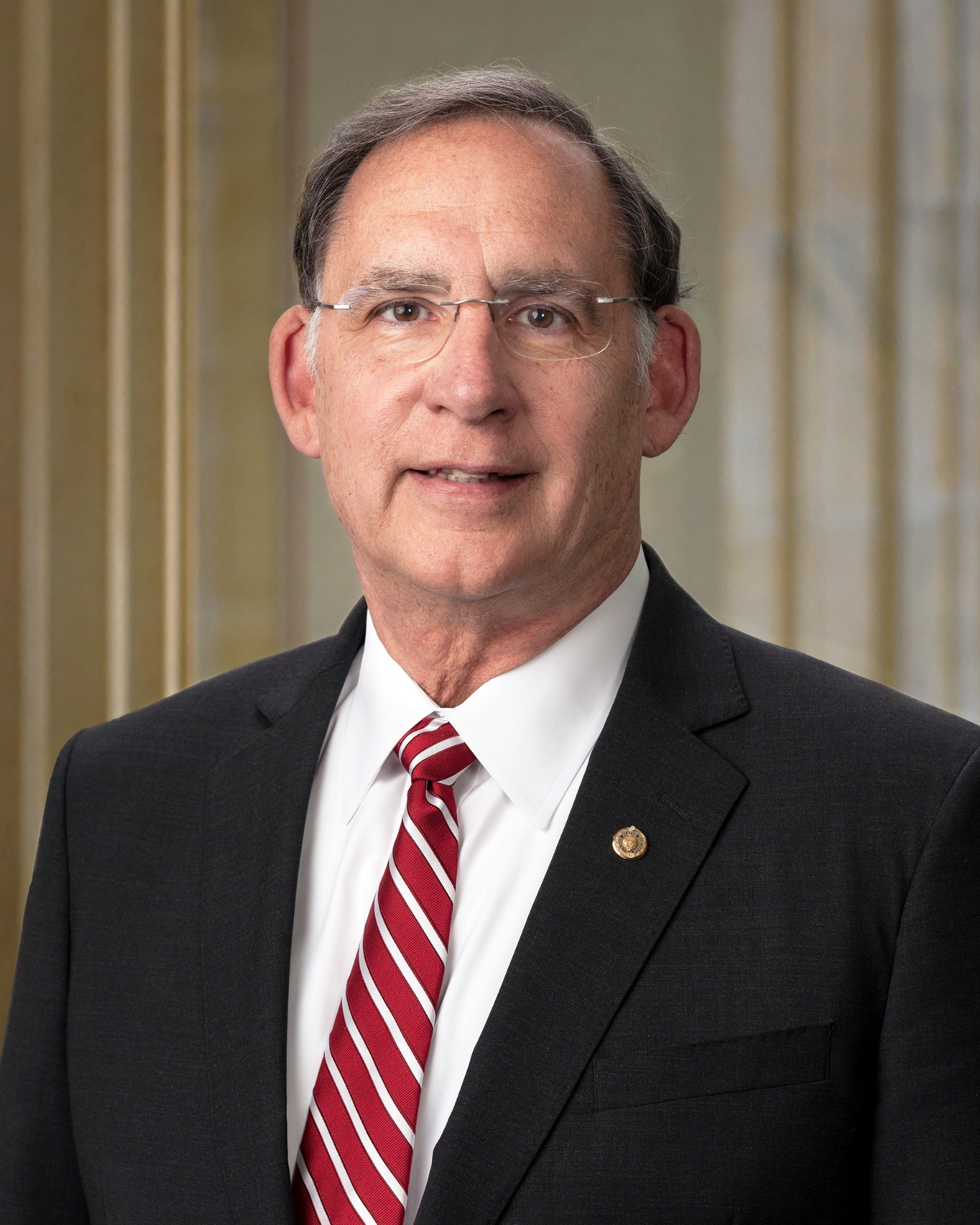Honor for Service

We recently marked the 77th anniversary of D-Day, the start of Operation Overlord that helped turn the tide of World War II. Like those who came before them and their successors, the men and women of the Greatest Generation were heroic yet ordinary people who were asked to do extraordinary things—and they did.
My dad was a waist gunner on B-17s during the war, and he continued his career serving our country in uniform for years afterward. Because of his service, I understand intimately what it means to grow up in a military family and witness all the challenges and opportunities that America’s servicemembers and their loved ones encounter.
As a member of the Senate Veterans’ Affairs Committee, I work diligently to ensure veterans in the Natural State and throughout our country are getting the benefits and services they have earned.
Earlier this summer, I stopped by VFW Post 4562 in Texarkana to listen to what local veterans and organizations that advocate for them had to say about the current state of affairs as it relates to getting their care and assistance from the Department of Veterans Affairs (VA). This visit also gave me an opportunity to update them on what I’ve been working on to enhance the federal government’s efforts to provide support to our former servicemembers.
Some common themes came up: the disability exams backlog, the hardship related to traveling to distant facilities to receive care, the suicide crisis, toxic exposure and more. These serve as a reminder that there remain areas for improvement to the quality of care and delivery of services that the men and women who proudly and honorably dedicated themselves to defending our nation deserve. I’ve been privileged to serve on the VA Committee throughout my time in the Senate and am familiar with the long-standing issues we’ve faced in this mission as well as the new challenges that have arisen. We have made progress on several key fronts, but there’s more work to do.
Last Congress, I introduced legislation to reduce the backlog of pending VA disability claims by expanding eligibility for health care providers who are allowed to conduct the required medical exam for veterans applying for benefits. President Trump signed it into law as part of a comprehensive veterans’ package, highlighting the need to address this problem quickly.
As far as the need for a solution to the burden of having to travel great distances to receive care, the VA MISSION Act has been a tool the federal government is now implementing to bring care to veterans in their own communities. I was proud to support it because the service options provided in this bill will give veterans who live far from a VA facility and need frequent follow-up care, easier access to local providers and walk-in clinics.
The veteran suicide crisis is an issue I’ve paid particular attention to because it is such a tragic situation. I also serve as the ranking member of the Senate Appropriations Committee’s subcommittee that funds the VA and know firsthand that continuing to increase the Department’s budget is not the solution to bringing down the number of veterans who take their own lives. Instead, what I’ve successfully pushed for is an alternative approach that seeks to leverage the work non-profit organizations are already doing to provide support to veterans. My IMPROVE Well-Being for Veterans Act, which became law last October, will allow us to reach more veterans and support organizations that have a track record of success in suicide prevention and better measure the effectiveness of these programs. In fact, earlier this summer, the VA Secretary testified that the department intends to implement this effort next year. I will be closely monitoring its progress to insure it is working as intended.
Care for women veterans has also been a top concern I’ve heard about from Arkansans. Women comprise ten percent of the veteran population, and there are approximately 20,000 women veterans in Arkansas. That number is only going to grow as more women serve our country in uniform. Still, we know that many of them face barriers to care and services because the VA has been slow to adapt to this reality. I led efforts to pass the Deborah Sampson Act last Congress to help address this concern. The bill, which had bipartisan support, will help create a culture at the VA that welcomes women veterans and makes them feel like they belong. It mandates primary care for female veterans at all medical centers and clinics, expanding eligibility and access to counseling, and improving standards for providing women’s health care.
Building on this foundation is something I’m committed to because this is just the beginning of the work necessary to make certain all veterans have access to the benefits and services our nation owes them.
Just last month, my latest policy initiative to further improve women veterans’ care through the VA passed out of committee unanimously. This bill, the Supporting Expanded Review for Veterans in Combat Environments (SERVICE) Act, would require the VA to conduct mammograms for all women who served in areas associated with burn pits and other toxic exposures regardless of age, symptoms or family history. The incidence of breast cancer in women veterans and military populations is estimated to be up to 40 percent higher than the general population, according to a report from the National Institutes of Health and is believed to be correlated to their proximity to burn pits and other toxic exposure occurrences. Knowing this is the case, getting women veterans screened for breast cancer early makes perfect sense. Therefore, I’m working to make sure the VA does so.
Finally, one issue that has direct ties to Arkansas has also seen some progress this year. Mena resident Bill Rhodes originally approached my office and informed us of the VA’s presumptions for toxic exposure as it relates to those who served in Thailand in the Vietnam War era. To the concern of many, arbitrary restrictions are preventing veterans like Mr. Rhodes, who has developed illnesses linked to Agent Orange, from proving toxic exposure in order to qualify for VA benefits. I reintroduced legislation to correct this inequity, and the Senate VA Committee passed it earlier this year. I look forward to helping advance it so we can make sure these veterans get the care they need.
Whether it is through the Veterans History Project or meetings like my sit-down with individuals and veterans’ organizations in Texarkana, I’m always seeking the input of former servicemembers, their loved ones and advocates so I know what their concerns are and can craft policies or conduct oversight to find solutions.
When talking about this issue, I always like to remind people that our nation made a promise to these men and women in exchange for their service. Therefore, the services and benefits they are owed have been earned and they have every right to expect them.
It’s up to all of us, Congress, the Executive Branch, state and local governments, and communities across our great nation, to stand up for our veterans and require accountability to ensure the commitments we made to them are being fulfilled. My recent visit with local veterans at VFW Post 4562 confirmed this is the case in Texarkana, and I’m proud to partner with them to keep pushing for more improvements that will best serve the men and women who so valiantly and nobly answered their country’s call to serve.
Sen. John Boozman, Arkansas Republican, serves as Ranking Member on the Senate Committee on Agriculture, Nutrition, and Forestry. He also serves on the Senate Committee on Environment and Public Works, the Senate Committee on Appropriations and the Senate Committee on Veterans’ Affairs.

